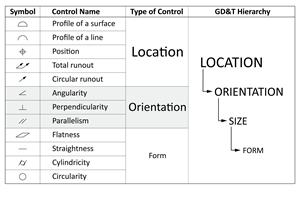CIMdata Publishes “Smarter Decisions—Differentiating Products”
“The Strategic Value of Business Intelligence in PLM”
CIMdata, the leading global Product Lifecycle Management (PLM) management consulting and research firm announces a new paper about the use of Business Intelligence and Analytics in PLM.
In today’s highly competitive global market, bringing differentiating, right to market products faster is critical to a company’s success as they strive to obtain a “first mover” competitive advantage. To effectively leverage their product information, companies are using business intelligence (BI) and analytics solutions to provide users the right information, in context, for their needs.
BI is being used to assess the efficacy of a PLM system deployment across a complex global enterprise and its New Product Development (NPD / NPI) processes. BI solutions gather, aggregate, analyze and disseminate information with historical, current and predictive views of that information to facilitate decision-making. It provides data and performance analytics to measure progress, benchmark the performance, and pinpoint prioritized areas of improvements via key performance metrics and digital dashboards. Importantly, BI is being used to drive processes based on changes in business and product information and process status.
This paper provides a perspective on the importance of BI and analytics within product development: the pressures that motivate its use; BI’s role; its value and future; and how one company, eQ Technologic, is developing and delivering advanced, rapid BI solutions for the PLM market.
“Smarter Decisions—Differentiating Products” is available to be freely downloaded from our web site at http://www.cimdata.com/publications/reports_complimentary.html.
About Business Intelligence and PLM: Obtaining a significant improvement in business performance requires the ability to quickly collate, aggregate, and present information from multiple business systems (PLM, ERP, CRM, etc.) so that users can make faster, more informed decisions.
With so much information being created in these systems, new solutions are required to help users and management work more effectively. A primary objective of BI is to support effective, timely, and actionable business decision-making. BI incorporates the following functions: measurement; analytics; reporting; collaboration; and knowledge management.
But to make a better decision, all the data must be turned into information that is accurate, timely, and actionable. It should be presented to users in a form that enables them to synthesize and analyze the vast amounts of data being created in multiple business systems. They need to be able to understand patterns and spot trends.
Additionally, to maximize the efficacy of the PLM initiatives, companies need comprehensive capabilities to track and monitor various aspects of PLM processes, managed information, and product programs. Companies often do not understand what to focus on and how to get the most out of PLM. BI tools and techniques can be essential for creating structure from vast quantities of data, while analytics helps expose the most relevant information for the benefit of decision-makers. BI is essential for companies to realize the full potential of PLM.
About CIMdata: CIMdata, a leading independent worldwide firm, provides strategic management consulting to maximize an enterprise’s ability to design and deliver innovative products and services through the application of Product Lifecycle Management (PLM) solutions. Since its founding in 1983, CIMdata has delivered world-class knowledge, expertise, and best-practice methods on PLM solutions. These solutions incorporate both business processes and a wide-ranging set of PLM enabling technologies.
CIMdata works with both industrial organizations and suppliers of technologies and services seeking competitive advantage in the global economy. In addition to consulting, CIMdata conducts research, provides PLM-focused subscription services, and produces several commercial publications. The company also provides industry education through PLM certificate programs, seminars, and conferences worldwide. CIMdata serves clients around the world from offices in North America, Europe, and Asia Pacific.
Related Content
MMT Chats: Solving Schedule and Capacity Challenges With ERP
For this MMT Chat, my guests hail from Omega Tool of Menomonee Falls, Wisconsin, who share their journey with using enterprise resource planning (ERP)—and their people—to solve their schedule and capacity load monitoring challenges.
Read MorePrecision Meets Innovation at IMTS 2024
After attending IMTS, it's clear that the integration of advanced technologies is ready to enhance precision, efficiency and automation in mold manufacturing processes. It’s a massive event, so here’s a glimpse of what the MMT team experienced firsthand.
Read MoreHow to Select a Mold Temperature Controller
White paper shares how cooling channel analysis, which collects maximum pressure drop, total flow rate and heat dissipation, eases the performance evaluation of mold temperature controllers.
Read MoreTolerancing in Mold Design, Part 2: Using GD&T to Address Conventional Tolerancing Issues
Mold designers can achieve a single interpretation of workpiece functionality when following the American Society of Mechanical Engineers Geometric Dimensioning and Tolerancing standard.
Read MoreRead Next
How to Use Continuing Education to Remain Competitive in Moldmaking
Continued training helps moldmakers make tooling decisions and properly use the latest cutting tool to efficiently machine high-quality molds.
Read MoreAre You a Moldmaker Considering 3D Printing? Consider the 3D Printing Workshop at NPE2024
Presentations will cover 3D printing for mold tooling, material innovation, product development, bridge production and full-scale, high-volume additive manufacturing.
Read MoreReasons to Use Fiber Lasers for Mold Cleaning
Fiber lasers offer a simplicity, speed, control and portability, minimizing mold cleaning risks.
Read More



















